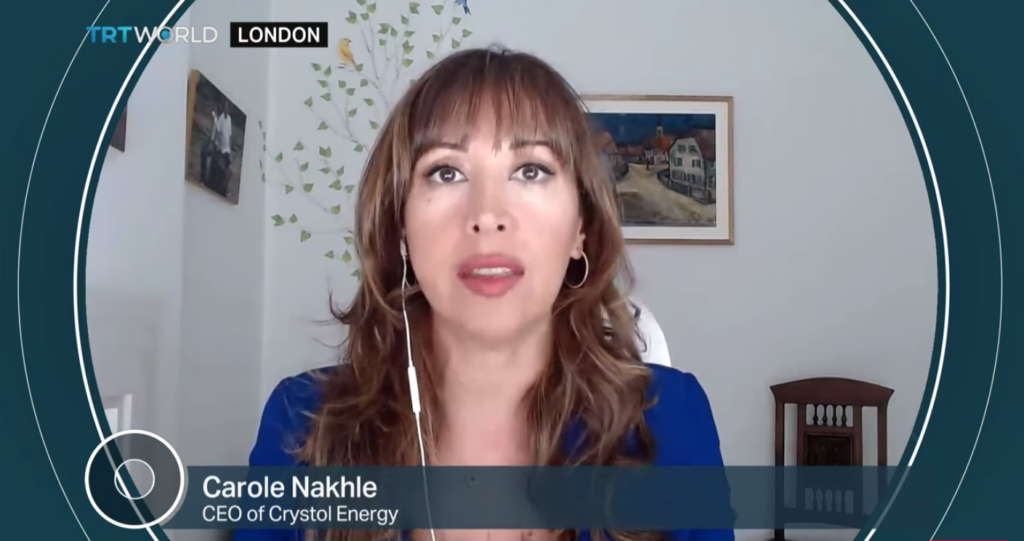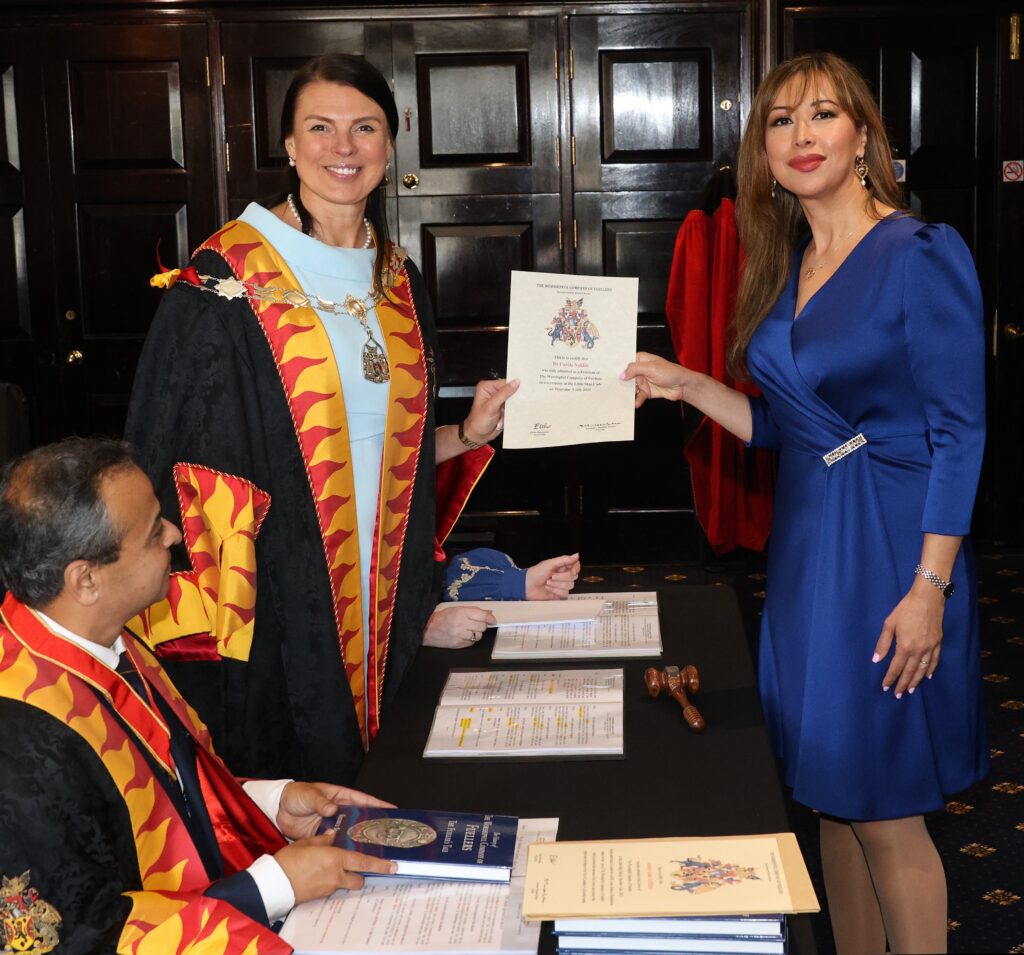In this interview to David Foster from TRT World, Dr Carole Nakhle, CEO of Crystol Energy, discusses energy policy following the war in Ukraine.
Some of the key points covered during the discussion:
- Although commitment to the climate agenda is maintained across the EU, we can sense greater leniency with respect to fossil fuels.
- In the RePowerEU publication, the EU has put great emphasis on speeding up investments in renewable energy, but at the same time acknowledged that the Union needs to build the infrastructure needed to import natural gas, stick to coal a little longer and delay the decommissioning of nuclear power plants to compensate for the disruption in Russian gas supplies.
- The war in Ukraine has led to a global consensus that a country cannot achieve climate security without reaching energy security.
- While renewable energy technologies foster domestic wind and solar resources, the metals needed to manufacture those technologies are still mostly coming from a limited number of suppliers. Some of these suppliers also face institutional and political problems that hinder them from being classified as reliable suppliers.
- The contribution of nuclear energy to the global electricity generation peaked in the 1990s and since then nuclear hasn’t been able to go back to its global importance due to a myriad of technical, economical and social reasons. Therefore, it is unlikely that the technology will provide a panacea to the current crisis in Europe.
- Price signals will eventually lead consumers to adjust to high prices and improve their energy efficiency measures.
Dr Nakhle was joined by Leon Izbicki, European Natural Gas Analyst at Energy Aspects, and Janis Kluge, Senior Associate at the German Institute for International and Security Affairs.
Watch the discussion:
Related Analysis
“Russia’s oil is in long-term decline – and the war has only added to the problem“, Dr Carole Nakhle, Jul 2022
“Energy Sanctions and the Global Economy: Mandated vs Unilateral Sanctions“, Christof Rühl, May 2022
“Sanctions and the Economic Consequences of Higher Oil Prices“, Christof Rühl, Apr 2022
Related Comments
“Nord Stream 1: Why is Russia cutting gas supplies to Europe?“, Dr Carole Nakhle, Jul 2022
“Russia’s war help Qatar reassert its importance“, Dr Carole Nakhle, Jul 2022









